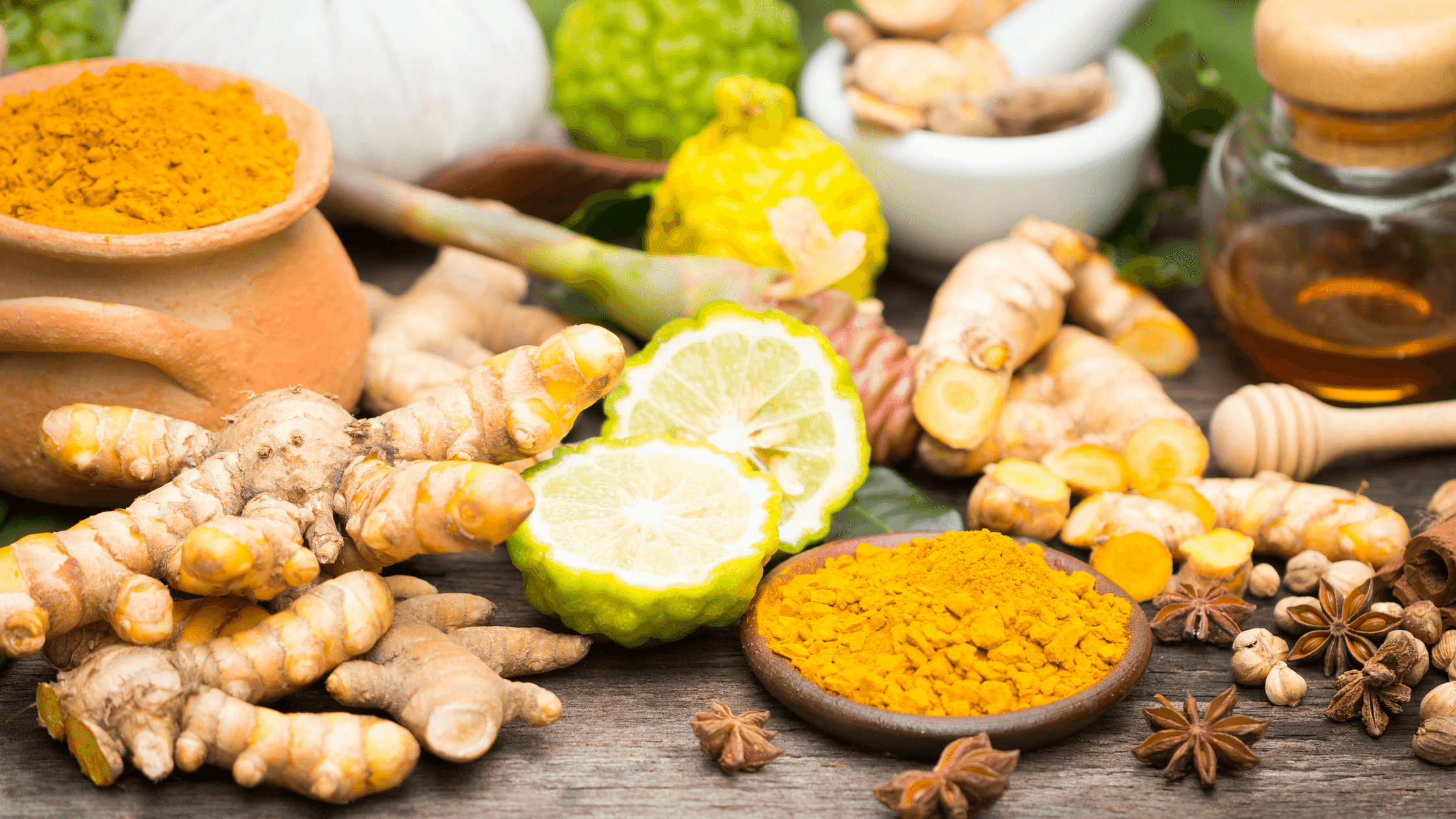Ayurvedic Immunity Boosters | Benefits, Types, Pros, Cons and More
Since ancient times, Ayurvedic medicines and herbs have been used in India. Thousands of diseases have been healed thanks to the healing properties of these plants, which have little to no side effects

Since ancient times, Ayurvedic medicines and herbs have been used in India. Thousands of diseases have been healed thanks to the healing properties of these plants, which have little to no side effects. Let's take a look at some of the ayurvedic herbs that can help you improve your immunity.
Moringa as an Ayurvedic Immunity Booster
Immunity-Boosting Properties of Moringa
Moringa comes from the foothills of the great Himalayan range in northwestern India.
Moringa has anti-inflammatory properties
Moringa benefits include treating inflammation in the body. Inflammation can result in numerous health issues like arthritis, cell, tissue, and organ damage. Moringa leaves are known to help with these conditions specifically.
Moringa is an excellent source of antioxidants
It's full of antioxidants that keep free radicals at bay and prevent cellular damage.
Moringa is full of vital nutrients
It's jam-packed with Vitamin B6, Vitamin C, Iron, Vitamin A, and many other nutrients. It is higher than the nutritional values of milk, oranges, and carrots as well.
Forms of Moringa
Moringa is available in powdered, capsule, whole leaf, and syrup.
Easiest Way to Consume Moringa
In its powdered form.
How to Use Moringa?
Add moringa powder or a few moringas leaves to your smoothie. This ayurvedic immunity booster can also give a healthy twist to your tea. Add 2-3 moringa leaves to your brewing tea, and it's ready!
How Often Should you Have it?
Eleven teaspoons of moringa powder are recommended daily. You can consume more than this as well, but it's not prudent.
Pros of Moringa
- A reduction in cholesterol.
- Maintenance of blood sugar levels.
- Protecting the liver and treatment of cancer.
Cons or Side-effects of Moringa
- The high amount of alkaloids in the Moringa plant may reduce heart rate and lower blood pressure.
- Apart from this, there are no other side-effects of Moringa. It is perfectly safe to consume.
Also read: Top 4 ways to boost male immunity
Turmeric is Used in the Ayurvedic Community as a Popular Immunity Booster
Where is Turmeric Found?
Turmeric is found in southern India and parts of Asia.
Immunity Boosting Properties
Turmeric is the best Ayurvedic medicine for immunity
The Cururmin compound in turmeric has anti-inflammatory effects. It gets rid of bacteria, infections and strengthens your immune system. You can also supplement your daily routine by performing Yoga for immunity.
Turmeric is a good antioxidant
Free radicals hamper the body's functioning and make you susceptible to various diseases. Turmeric activates the body's defense systems. Thus, protecting it from infections and life-threatening diseases.
With turmeric-say no to stress
Stress and anxiety are also known to beat down the immune system over time. Curcumin shows promising effects by treating higher levels of stress. Curcumin releases serotonin, also called the stress-releasing hormone that helps put your mind at ease.
Forms of Turmeric
Turmeric is found in the raw form, in capsules, and in powder.
Easiest Way to Consume it
Turmeric powder is easily accessible in the Indian market. It is one of the most common Indian household spices. You can incorporate this powder into numerous dishes.
How to Use Turmeric?
- Brew some turmeric tea.
- You can also use raw, powdered turmeric to make a cup of tea.
How to Add Turmeric to Your Food?
Add turmeric powder to rice or any vegetable recipe of your choice for extra flavor and good health.
How Often do You Have it?
500-2000 mg of turmeric daily is recommended, especially in powdered form.
Pros of Consuming Turmeric
- Prevention of cancer
- Healer of wounds
- Low risk of heart diseases, arthritis, and Alzheimer's condition.
Cons of Turmeric
There are no side effects of turmeric when consumed sparingly. Excessive consumption can cause vomiting, nausea, and diarrhea.
Who Should not Have it?
Men with gallstones, bile duct, liver disease, or other biliary diseases must not consume turmeric. Why is this so? Turmeric increases bile secretions, which can worsen these conditions.
Also read: Ashwagandha - The Super Herb
Giloy is an Excellent Source of Ayurvedic Immunity Booster Properties
Where is Giloy found?
Giloy is native to the tropical regions of India.
Immunity Boosting Properties of Giloy
Giloy purifies blood
Giloy, an Ayurvedic immunity booster, has antioxidant properties that act as a blood purifier. Giloy benefits for health also include enhancing the body's defense mechanism.
Giloy has anti-inflammatory properties
Along with reducing inflammation, Giloy is an antipyretic. This means it can reduce chronic and life-threatening fevers like dengue, malaria, and the flu.
Giloy has anti-viral properties
Giloy has anti-viral properties that protect you from infections.
What Form is it Found in?
Giloy is found in capsules, pills, juice, powder, syrup, and raw (Giloy stem) forms.
Easiest Way to Consume It
In its syrup form.
How to Have Giloy?
- Giloy syrup.
- Consume capsules along with lukewarm water.
- Giloy tea
How to make Giloy Tea?
Add Giloy stems in boiling water and let them simmer for 5-10 minutes. Add the other ingredients you prefer in your cup, and drink up!
Pros of Giloy in Ayurveda for Immunity
- Giloy reduces chronic fever, hay fever, and dengue.
- It regulates blood sugar levels.
- It assists digestion.
Cons of Giloy
- Giloy may lower blood glucose levels.
Who Should not Take it?
- Men grappling with autoimmune diseases.
- Men prescribed anti-diabetic medicines.
How Often Should you Have it?
- 2- 3 teaspoons of Giloy juice daily.
- Giloy tablet-1-2 tablet twice a day
- Giloy powder- ¼-½ tsp per day
Also read: Shatavari Benefits for Men
Amla as an Ayurvedic Immunity Booster
Where is Amla found?
Amla is found in India, Pakistan, and Bangladesh.
Immunity Boosting Properties of Amla
Amla has a rich source of Vitamin C
This strengthens the male immune system.
Amla strengthens the Respiratory system
- Amla benefits will make you forget what colds, coughs, and other respiratory problems feel like when consumed correctly.
- Amla has antioxidant and anti-viral properties too.
What Form is it Found in?
Amla is available as whole fruit, in a juice form, as a sweet candy, in a tablet form, powdered, and as a syrup.
Easiest Way to Consume it
As a whole fruit, however, how to consume Amla is entirely a personal choice. Amla juice has a wide variety of health benefits as well.
How to Use Amla?
- You can have Amla juice with lukewarm water as soon as you wake up in the morning. Make sure to consume this on an empty stomach.
How Often Should you Have it?
- 1-2 Amlas daily.
Pros of Amla
- As it is rich in Vitamin A, it is suitable for your eyes.
- It improves digestion.
- It possesses anti-aging benefits.
Cons of Amla
- Amla may thin your blood. This increases the risk of bleeding post-surgery.
- It may also lower blood sugar levels.
Who Should Not Take it?
If you have undergone surgery in the near past or are diabetic, avoid consuming Amla.
Also read: 8 food items to boost men's immunity
Ginger is an Essential Source for Boosting Immunity
Where is Ginger found?
Ginger is native to India, Indonesia, Nigeria, Nepal, and China.
Immunity Boosting Properties of Ginger
- Ginger consists of an active component called Gingerol that boosts immunity.
- Ginger also has anti-bacterial, anti-inflammatory, and anti-oxidative properties. It does away with inflammation, ailments, and betters immunity.
What Form is it Found in?
It comes in raw, dried, powdered/grounded, pickled, preserved, or crystallized form.
The Easiest Way to Consume it
In its fresh or raw form.
How to Use Ginger?
- You can use diced Ginger in your tea. Teas for weight loss are also a good idea to maintain a healthy Body Mass Index.
- Add grounded Ginger to temper your food.
References
- WebMD Medical Reference, November 2020; Health Benefits of Moringa Powder - https://www.webmd.com/diet/health-benefits-moringa-powder#2
- J Bhattacharya, G Guha, B Bhattacharya; Powder microscopy of bark--poison used for abortion: moringa pterygosperma gaertn - https://pubmed.ncbi.nlm.nih.gov/12262404/
- Suzanne C. Segerstrom, Gregory E. Miller, February, 2006; Psychological Stress and the Human Immune System: A Meta-Analytic Study of 30 Years of Inquiry - https://www.ncbi.nlm.nih.gov/pmc/articles/PMC1361287/
- S. K. Kulkarni, A. Dhir, April 2010; An Overview of Curcumin in Neurological Disorders - https://www.ncbi.nlm.nih.gov/pmc/articles/PMC2929771/
- Betül Kocaadam-Bozkurt, Nevin Sanlier, November 2015; Curcumin, an Active Component of Turmeric (Curcuma longa), and Its Effects on Health - https://www.researchgate.net/publication/283492603_Curcumin_an_Active_Component_of_Turmeric_Curcuma_longa_and_Its_Effects_on_Health
- NWA Interventional Pain; Does Taking Turmeric for Inflammation Really Work? - https://nwapain.com/does-taking-turmeric-for-inflammation-really-work/
- Gail Woodland, December 2018; Turmeric: potential adverse effects and interactions - https://www.sps.nhs.uk/articles/turmeric-potential-adverse-effects-and-interactions/#:~:text=Due to their ability to,and any other biliary disease.
- V. Sharma, D. Pandey; Beneficial Effects of Tinospora cordifolia on Blood Profiles in Male Mice Exposed to Lead - https://www.ncbi.nlm.nih.gov/pmc/articles/PMC2964740/
- Rohit Sharma, HetalAmin, Galib, Pradeep Kumar Prajapati, January 2015; Antidiabetic claims of Tinospora cordifolia (Willd.) Miers: critical appraisal and role in therapy -https://www.sciencedirect.com/science/article/pii/S2221169115301738
- Ann M. Bode, Zigang Dong; Herbal Medicine: Biomolecular and Clinical Aspects. 2nd edition - https://www.ncbi.nlm.nih.gov/books/NBK92775/

